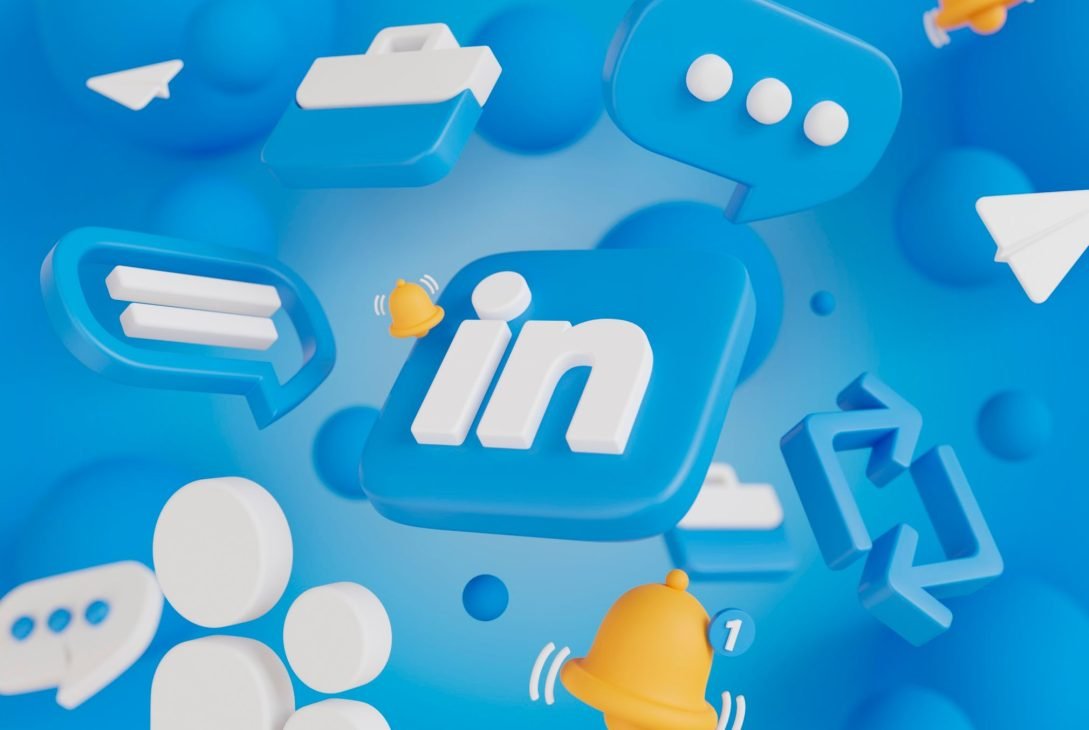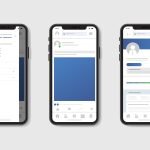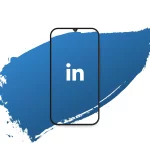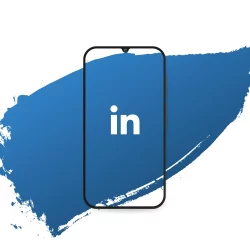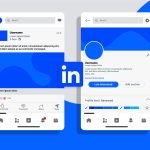Introduction
Creating a strong personal brand on LinkedIn is crucial in today’s professional landscape. With millions of users, LinkedIn has become very popular for building and showcasing your professional identity. In this comprehensive guide, we’ll explore the four essential steps to enhance your branding on LinkedIn, offering practical tips and examples to help you stand out in the digital crowd.
Step 1: Define Your Brand
Show Your Unique Professional Identity
Before diving into the world of personal branding on LinkedIn, take a moment to reflect on your unique skills, values, and experiences. Your brand combines these elements, showcasing what sets you apart from others in your industry.
Identify Your Strengths
- Conduct a self-assessment to identify your key strengths.
- Consider feedback from colleagues and mentors.
- Look at your past achievements to figure out what you’re good at.
Create Your Brand Statement
Create a short statement that tells people who you are, what you’re good at, and how you can contribute. For example: “I love marketing and am great at making interesting content that gets people interested in a brand.”
Showcase Your Personality
Show who you are by adding bits of your personality to your profile. Share hobbies, volunteer work, or personal stories to make your professional side more relatable and human.
Step 2: Optimize Your LinkedIn Profile
Build a Stellar LinkedIn Profile
Your LinkedIn profile is your brand’s digital representation and the first impression you give potential employers or clients. Therefore, it’s crucial to create a profile that showcases your skills, achievements, and experience in the best possible way. A well-crafted LinkedIn profile can help you stand out and attract opportunities that align with your career goals.
Professional Profile Photo
- Use a high-quality, professional-looking photo.
- Dress in attire suitable for your industry.
- Maintain eye contact and a friendly expression.
Compelling Headline
Craft a headline that goes beyond your job title. Highlight your expertise or a unique aspect of your professional identity. For example: “Innovative Graphic Designer Transforming Ideas into Visually Stunning Realities.”
Keyword-Rich Summary
Add relevant keywords naturally into your summary to increase discoverability. Use terms like “personal branding,” “professional development,” and “industry expertise.”
Showcase Your Work and Achievements
- Utilize the featured section to showcase projects, articles, or presentations.
- Quantify achievements with numbers whenever possible.
- Request and display recommendations from colleagues or clients.
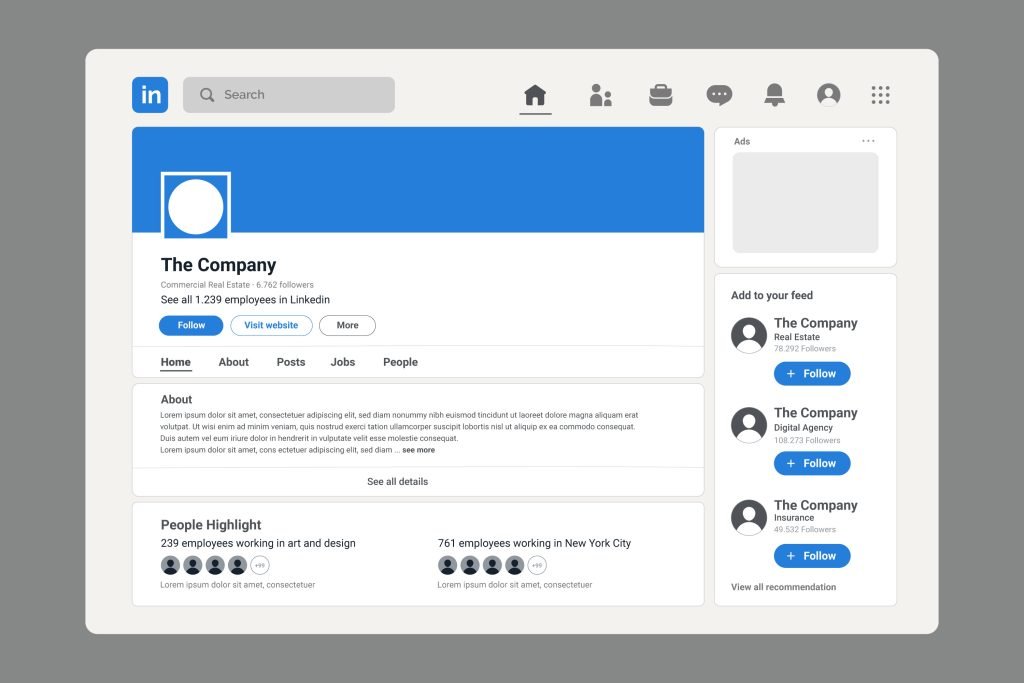
Step 3: Engage with Your Network
Creating a personal brand is not a one-way street. Actively engage with your network to foster meaningful connections.
Regularly Share Valuable Content
- Share industry insights, articles, or your thoughts on relevant topics.
- Comment on and share content from others to show your engagement.
- Use various media types, such as text posts, images, and videos.
Participate in LinkedIn Groups
Join and actively participate in LinkedIn groups related to your industry. Contribute to discussions, share your expertise, and connect with like-minded professionals.
Network Strategically
Strategically build your network by connecting with professionals who share your industry and career interests. Customize your connection requests to leave a lasting impression.
Step 4: Review and Improve
Monitor Your LinkedIn Analytics
Regularly check your LinkedIn analytics to understand how your content is performing. Analyze the engagement metrics, such as views, likes, and comments, to refine your content strategy.
Feedback
Ask for feedback from colleagues, mentors, or industry experts. Valuable insights from feedback can help enhance and refine your brand.
Stay Updated with LinkedIn Trends
LinkedIn is continually changing, so stay informed about new features and trends. Adjust your strategy to match what’s new on the platform.
1. What are some relevant keywords to add to the LinkedIn summary?
Adding keywords that reflect your professional skills, experiences, and industry is important in your LinkedIn summary. For example:
- Skills and Expertise: Include specific skills relevant to your profession, such as “Digital Marketing,” or “Data Analysis.”
- Industry-Specific Terms: Use industry-specific keywords that recruiters might search for, like ” SEO” or ” Content Writer”.
- Certifications and Qualifications: Mention relevant certifications or qualifications you possess, such as “PMP Certified,” or “Google Analytics Expert,
Remember, the goal is to make your profile more discoverable by using terms that people in your industry commonly search for.
2. How often should one regularly share valuable content on LinkedIn?
Consistency is key when sharing content on LinkedIn.
- Regular Posting: Share valuable content at least 2-3 times weekly. This keeps your profile active and engages your network.
- Mix of Content: Share industry insights, articles, thought leadership, and personal achievements. This diversity keeps your audience engaged.
- Optimal Timing: Post during peak hours when your connections will most likely be online. These times often include mid-morning or early afternoon on weekdays.
Adjust your posting frequency based on the engagement you receive and the preferences of your specific audience.
3. What tips are for customizing connection requests to leave a lasting impression?
Personalization is key to making a positive impact when sending connection requests on LinkedIn. Here are some tips:
- Be Specific: Mention where you met or explain why you find the person’s profile interesting.
- Highlight Common Interests: If you share common interests or goals, mention them. It helps build a connection.
- Express Purpose: Clearly state why you want to connect and how the connection could be mutually beneficial.
- Professional Tone: Maintain a professional and polite tone in your message.
Customizing connection requests shows that you’re genuinely interested in building meaningful professional relationships, increasing the likelihood of a positive response.
How to use LinkedIn Groups for Lead Generation: A Definitive Guide
Conclusion
Following these four steps, you can develop a solid personal brand on LinkedIn that reflects your unique professional identity. Remember to regularly update and improve your profile, engage with your network, and stay active in the ever-changing landscape of LinkedIn. With dedication and a strategic approach, you’ll establish a powerful online presence that opens doors to new opportunities in your career.
